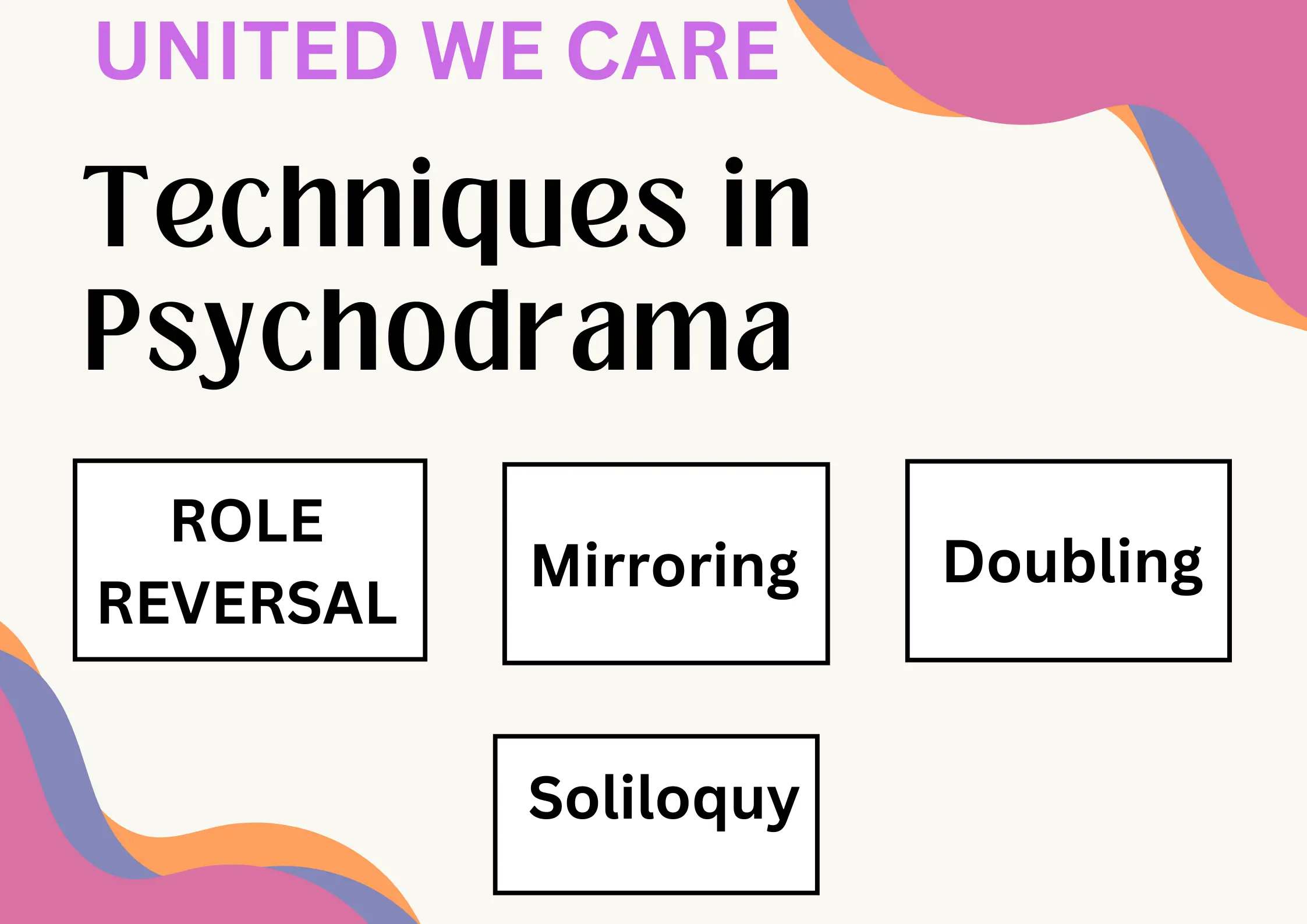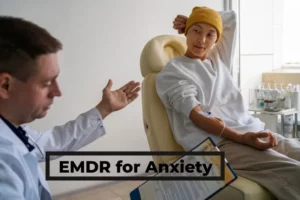Introduction
We humans have always been drawn to theatrics and drama. We have used theater for social commentary, self-examination in addition to entertainment. Theater provides us with an emotionally and socially stimulating environment that enables us to confront our concerns, feel heightened emotions, and communicate creatively. Early in the 20th century, therapists began employing drama as an instrument for mental health therapy because of the way that theatrics and drama foster human growth. Psychodrama is a form of psychotherapy that uses dramatic self-expression, role-playing, and group dynamics for the client to be able to understand themselves and their experiences better.
In this blog, we’ll discuss what psychodrama is, the techniques used, how it’s different from and similar to drama therapy, and its benefits.
What is psychodrama?
Psychodrama was developed by husband-wife duo Jacob and Zerka Moreno in the 1930s. It is an experiential, action-based therapy for you to understand your particular experiences more deeply and evaluate your behavior while reenacting past experiences or inner mental processes. It is often conducted in a space that serves as a stage, using props, and with a group of participants.
The Flow Of A Psychodrama Session
The group consists of around 8-12 participants led by a trained therapist. Each session is about two hours long and takes place in three phases: [1]
- The warm-up phase: Imagine yourself in the group. Firstly, you and other participants introduce themselves and establish a trust to feel safe while enacting and sharing personal aspects of their lives with a group of people. Then, you as a participant can volunteer to be the protagonist around whom the focus of the session will be diverted and others act out different roles from your life.
- The action phase: The therapist instructs and guides you to recreate a scene from your life and guides other group members to act as auxiliary egos or as particular people from your life. This is done through various techniques such as doubling, mirroring, and role reversal, which we will discuss in detail in the next section of this blog.
- The sharing phase: After the reenactment, the therapist returns to his role as a therapist and helps you to process your thoughts and emotions that may have come up. This can also be followed by a group discussion where the other participants share their insights from the experience that may help you.
Techniques in Psychodrama
As discussed in the previous section, the activities of the action phase are taken up through various techniques, such as [2]

- Role reversal: To understand it better, assume yourself in the role of the protagonist and play a key role in the life of another participant. This might help you view yourself from a different angle and become more sympathetic and understanding of the other person in your life.
- Mirroring: When the other group members act out a specific incident from your (protagonist’s) life, you stay silent and watch. This method helps you to see things more objectively when you experience strong emotions about a subject and can benefit by removing yourself emotionally from it.
- Doubling: One member of the group assumes your position (protagonist) and performs what they believe you as the protagonist to be experiencing, exhibiting, or concealing. This establishes a connection between reality and you as the protagonist’s inner thoughts and fosters empathy for the character.
- Soliloquy: You as a protagonist share your thoughts and feelings with the group, which helps you to understand yourself better and possibly even encourage catharsis or the letting go of emotions.
Drama therapy and psychodrama
While both drama therapy and psychodrama draw from theatrical techniques to promote mental well-being, they differ in terms of scope, foundations, goals, techniques used, and the process. [3]
Drama therapy allows you and other participants to explore fictitious scenarios during sessions and focuses on the symbolic and metaphorical parts of the drama, which is the main distinction between it and psychodrama. Psychodrama, on the other hand, uses action and enactment to examine your unique real-life experiences.
Drama therapy is a more general area that uses theater and dramatization to accomplish more abstract and artistic therapeutic aims, such as role-playing, storytelling, or improvisation. Moreno’s theories, which place a strong emphasis on creativity, spontaneity, and role theory, form the foundation of psychodrama. The participants are assisted in understanding their own emotions and lifestyles via the use of techniques including role reversal, mirroring, and doubling.
Another difference between drama therapy and psychodrama is that in drama therapy, the experiences are interactive and shared, where there is equal focus on each person’s experience. In psychodrama, one of the participants is the protagonist around whom the session is directed.
Benefits of Psychodrama
Psychodrama has been proven effective in the treatment of mood, personality, and eating disorders. It is also helpful in overcoming identity issues, negative self-image, relationship issues, as well as addiction. Here’s how psychodrama can help you:
- It can help you work through your past unresolved traumas through their enactment in a safe space.
- It can help you become more aware of your thoughts, feelings, and behaviors, which can also result in increased self-acceptance.
- As you interact with others during the session, your communication and relationship skills also receive a boost.
- When you physically express your emotions, it allows you to release your suppressed emotions, giving you a sense of liberation.
Conclusion
Psychodrama combines techniques of drama with principles of psychotherapy to aid individuals in understanding themselves and certain experiences better. It emphasizes spontaneity, creativity, and role theory. Psychodrama takes place in a group setting, with one of the participants as the protagonist. At the same time, the therapist directs the rest of the group to enact specific experiences from the protagonist’s life.
A psychodrama session can help you resolve any past traumas as well as improve your social and communication skills. If you wish to explore this approach to psychotherapy, book a session with one of our mental health experts at Kareify, who can suggest the right approach to suit your needs best.
References
[1] S. Giacomucci, “Essentials of Psychodrama Practice,” in Social Work, Sociometry, and Psychodrama. Psychodrama in Counselling, Coaching and Education, vol. 1, Springer, Singapore, 2021. [Online]. Available: https://doi.org/10.1007/978-981-33-6342-7_13. Accessed: Dec. 30, 2023.
[2] GoodTherapy, “Psychodrama.” [Online]. Available: https://www.goodtherapy.org/learn-about-therapy/types/psychodrama. Accessed: Dec. 30, 2023.
[3] E. Kedem-Tahar and N. Kellermann, “Psychodrama and Drama Therapy: A Comparison,” Arts in Psychotherapy – ART PSYCHOTHER, vol. 23, pp. 27-36, 1996. doi: 10.1016/0197-4556(95)00059-3. Accessed: Dec. 30, 2023.
[4] Karen Carnabucci, Linda Ciotola, Healing Eating Disorders with Psychodrama and Other Action Methods: Beyond the Silence and the Fury. [Online]. Available: https://books.google.co.in/books?id=neIdj6mIE4wC. Accessed: Dec. 30, 2023.










